Filter by

Innovation in Bayern
- Edition
- 1
- ISBN/ISSN
- 978-3-658-39561-2
- Collation
- -
- Series Title
- 4 b/w illustrations, 8 illustrations in colour
- Call Number
- 978-3-658-39561-2
- Edition
- 1
- ISBN/ISSN
- 978-3-658-39561-2
- Collation
- -
- Series Title
- 4 b/w illustrations, 8 illustrations in colour
- Call Number
- 978-3-658-39561-2
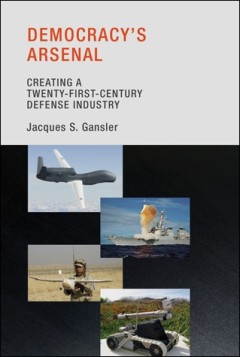
Democracy's Arsenal: Creating a Twenty-First-Century Defense Industry
The author describes the transformations needed in government and industry to achieve a new, more effective system of national defense.OCLC-licensed vendor bibliographic record.
- Edition
- -
- ISBN/ISSN
- 9780262295260
- Collation
- 1 online resource (xiv, 432 pages) :illustrations
- Series Title
- -
- Call Number
- -
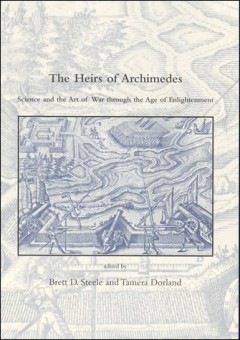
The heirs of Archimedes : science and the art of war through the Age of Enlig…
Essays analyze the connections between science and technology and military power in the late medieval, Renaissance, and Enlightenment periods.The integration of scientific knowledge and military power began long before the Manhattan Project. In the third century BC, Archimedes was renowned for his research in mechanics and mathematics as well as for his design and coordination of defensive sieg…
- Edition
- -
- ISBN/ISSN
- 9780262284226
- Collation
- 1 online resource (vi, 397 pages) : illustrations.
- Series Title
- Dibner Institute Studies in the History of Science and Technology
- Call Number
- 500 STE h
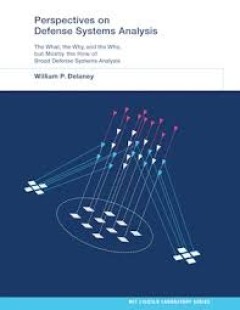
Perspectives on Defense Systems Analysis
"The Department of Defense and the military continually grapple with complex scientific, engineering, and technological problems. Defense systems analysis offers a way to reach a clearer understanding of how to approach and think about complex problems. It guides analysts in defining the question, capturing previous work in the area, assessing the principal issues, and understanding how they ar…
- Edition
- -
- ISBN/ISSN
- 9780262330244
- Collation
- 1 online resource.
- Series Title
- -
- Call Number
- -
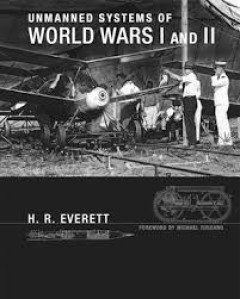
Unmanned Systems of World Wars I and II
"Foreword by Michael Toscano"--Cover."Military drones have recently been hailed as a revolutionary new technology that will forever change the conduct of war. And yet the United States and other countries have been deploying such unmanned military systems for more than a century. Written by a renowned authority in the field, this book documents the forgotten legacy of these pioneering efforts, …
- Edition
- -
- ISBN/ISSN
- 0262331772
- Collation
- 1 online resource (757 pages) :illustrations, map.
- Series Title
- -
- Call Number
- -
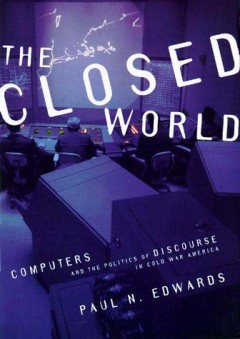
The Closed World: Computers and the Politics of Discourse in Cold War America
The Closed World offers a radically new alternative to the canonical histories of computers and cognitive science. Arguing that we can make sense of computers as tools only when we simultaneously grasp their roles as metaphors and political icons, Paul Edwards shows how Cold War social and cultural contexts shaped emerging computer technology--and were transformed, in turn, by information machi…
- Edition
- -
- ISBN/ISSN
- 9780262272162
- Collation
- 1 online resource (xx, 440 pages) :illustrations.
- Series Title
- -
- Call Number
- -
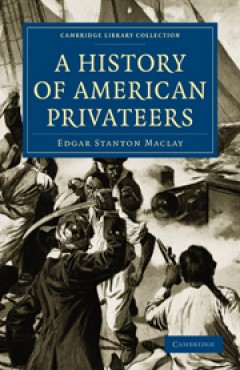
A History of American Privateers
American privateers played a significant role during the American War of Independence and the Anglo-American war of 1812, as the American regular navy was very small. Reinforcement by privateers sailing under the government's jurisdiction carrying Letters of Marque was essential, and in fact both sides made use of privateers, capturing each other's merchant ships as prizes. Many successful sail…
- Edition
- -
- ISBN/ISSN
- 9780511793707
- Collation
- -
- Series Title
- -
- Call Number
- -

Building the Trident network :a study of the enrollment of people, knowledge,…
In Building the Trident Network, Maggie Mort approaches the United Kingdom's Trident submarine and missile system as a sociotechnical network. Drawing on the sociology of scientific and technical knowledge and on actor-network theory, Mort recounts how the Trident program was stabilized in the United Kingdom and brought into "successful" production. She uncovers the nature of this success by re…
- Edition
- -
- ISBN/ISSN
- 9780262280235
- Collation
- 1 online resource (x, 217 pages) :illustrations.
- Series Title
- -
- Call Number
- -

Weapons in space :technology, politics, and the rise and fall of the Strategi…
"This is the first historical work that situates the Strategic Defense Initiative within a new phase in the militarization of space, uncovering a largely secret history of the role of military space technologies in late-Cold War U.S. defense strategy and foreign relations"--OCLC-licensed vendor bibliographic record.
- Edition
- -
- ISBN/ISSN
- 9780262377386
- Collation
- 1 online resource
- Series Title
- -
- Call Number
- -

Innovation and adaptation in war
An analysis of advances in military technology that illustrates the importance of organizational flexibility in both an attacker's innovations and an opponent's adaptations. How important is military innovation in determining outcomes during armed conflict In Innovation and Adaptation in War , Matthew Tattar questions the conventional wisdom that, to succeed, military organizations must innovat…
- Edition
- -
- ISBN/ISSN
- 0262372711
- Collation
- 1 online resource (288 pages).
- Series Title
- -
- Call Number
- -
 Computer Science, Information & General Works
Computer Science, Information & General Works  Philosophy & Psychology
Philosophy & Psychology  Religion
Religion  Social Sciences
Social Sciences  Language
Language  Pure Science
Pure Science  Applied Sciences
Applied Sciences  Art & Recreation
Art & Recreation  Literature
Literature  History & Geography
History & Geography